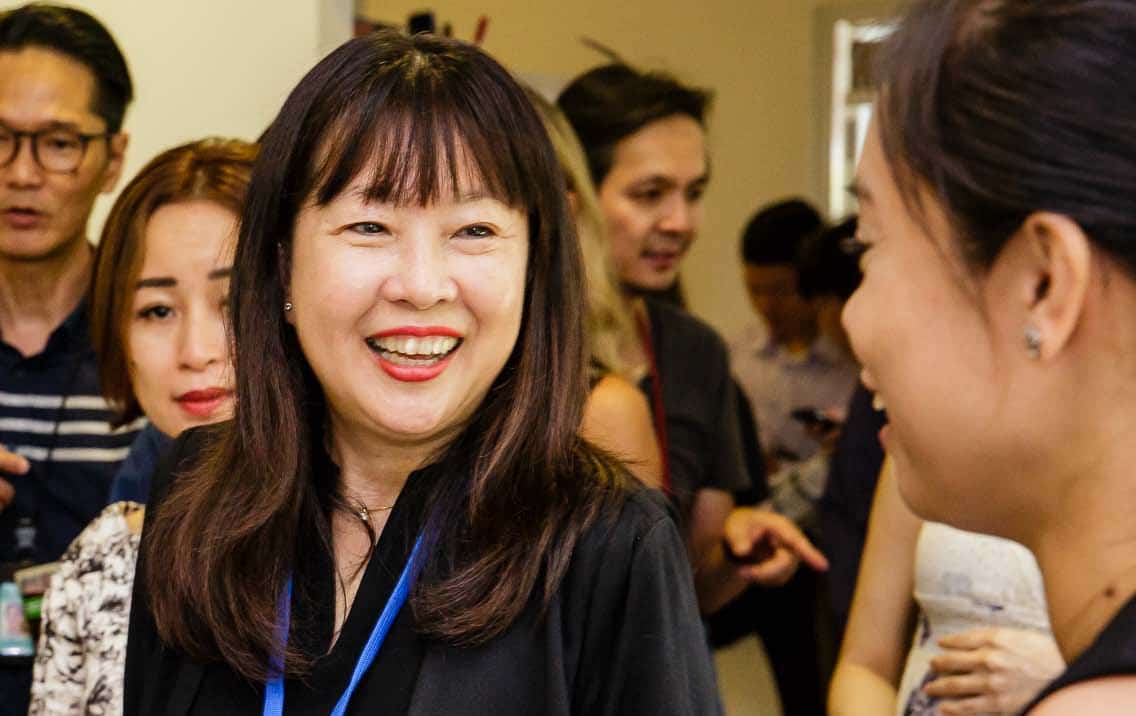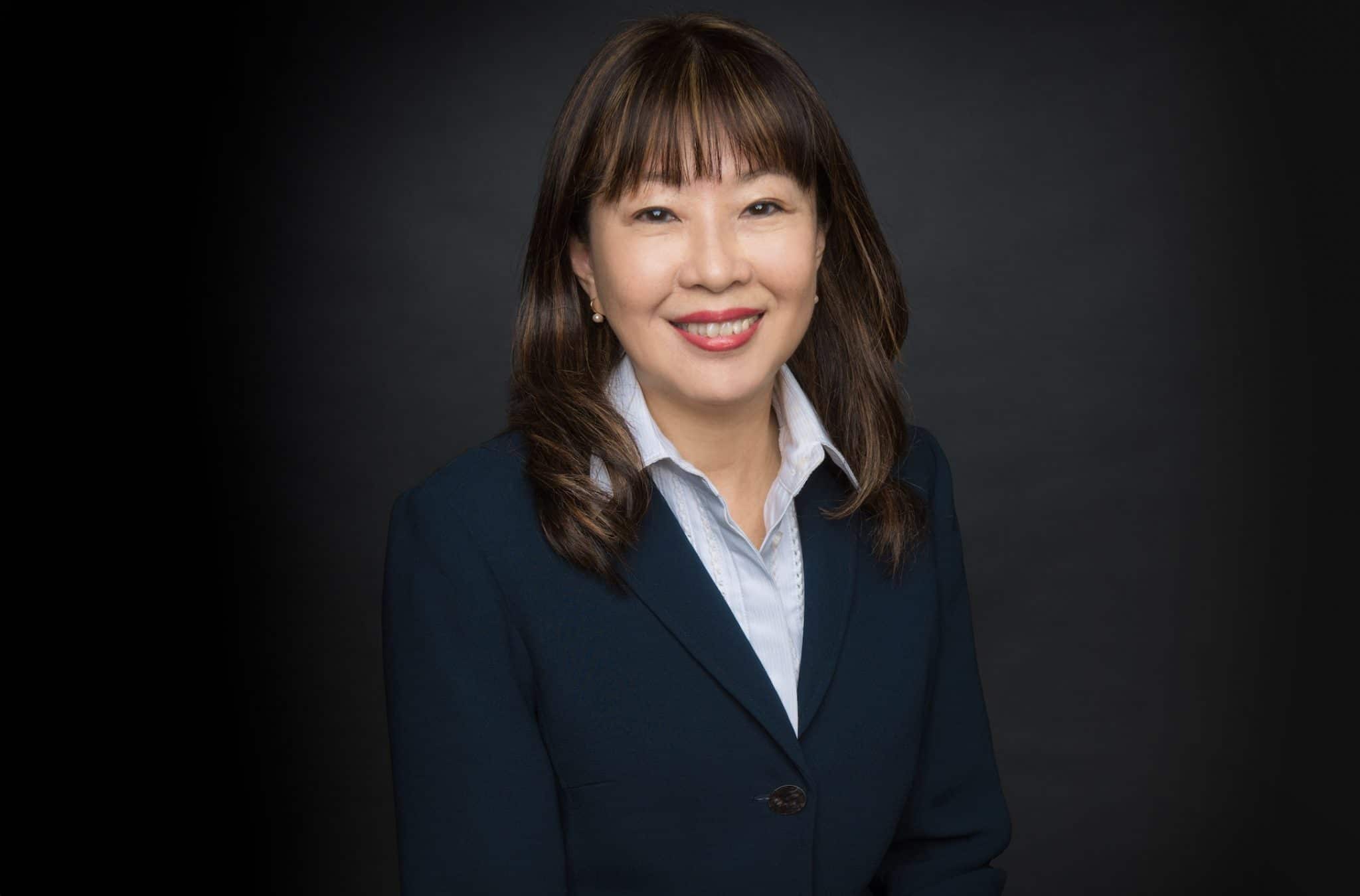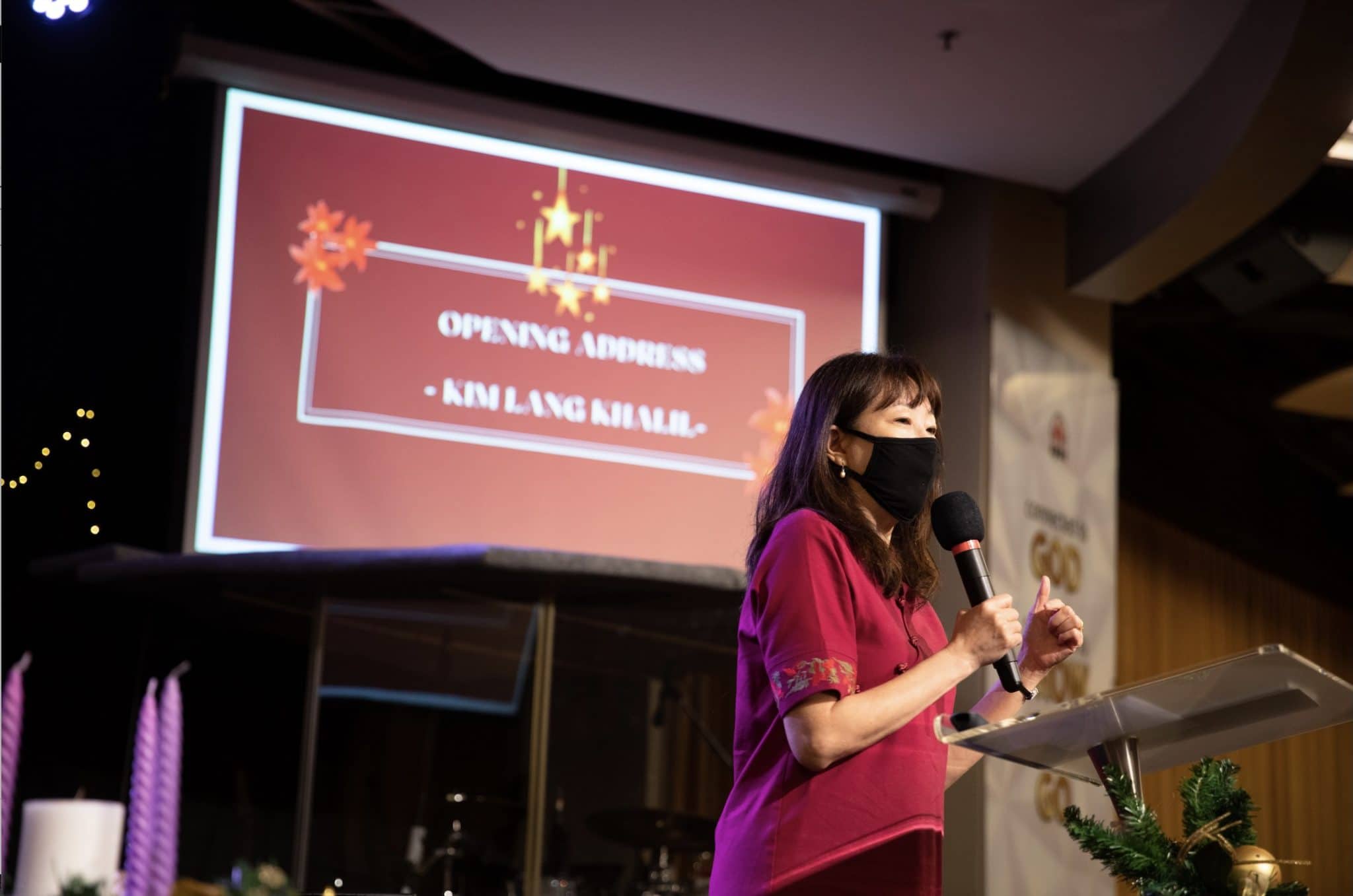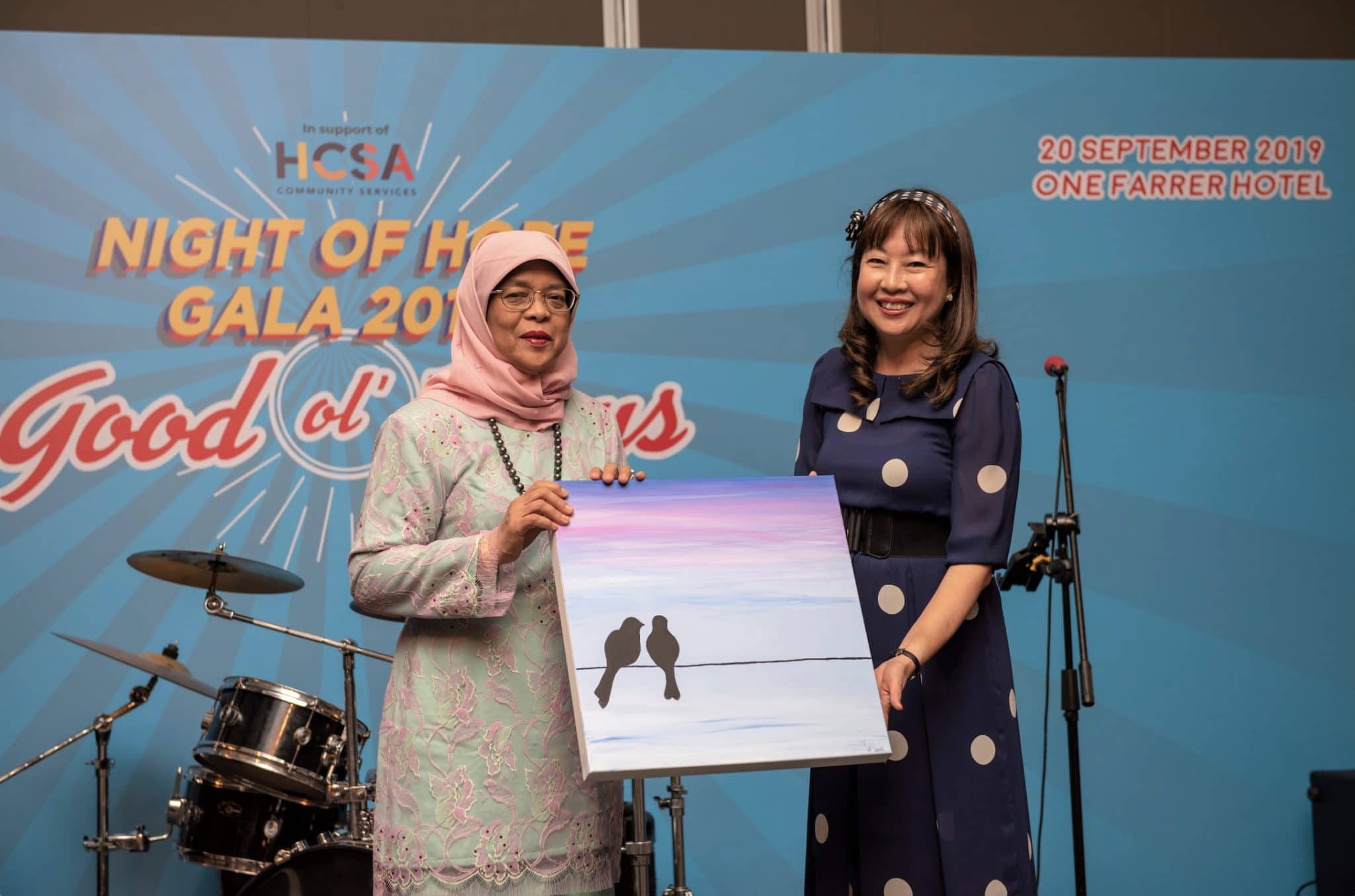She spent more than 10 years creating a safe home for the abused and the rejected
Peck Sim // December 17, 2021, 12:37 pm

Kim Lang
When the teenage girl spat a stream of unholy epithets in her face, Kim Lang Khalil stared at her point blank and did not flinch.
“She must be wondering why there was no reaction from me,” Kim Lang said with a laugh.
The truth was, Kim Lang had no idea what the girl was so viciously spewing at her.
“I had lived in a sheltered environment where I did not hear vulgarities. I didn’t even know that vocabulary,” she said. “It was a huge culture shock.”
Kim Lang, 62, is the CEO of HCSA Community Services, an organisation that aims to give a second chance and second life to drug addicts and ex-offenders. They also care for and restore teenage girls who have been abused, and support single parents socially, emotionally and financial.

Hearing the heartbreaking stories of the victims of abuse and journeying with them closely gave Kim Lang the insight that, while there is evil in humankind, there is also hope.
For 10 years before she helmed HCSA, she was Director of the Dayspring Residential Treatment Centre (DRTC), a home for teenage girls who have suffered the trauma of physical, emotional and sexual abuse.
She had been serving at HCSA as volunteer since its formation in 1995, when a band of brothers from Community of Praise Baptist Church launched a programme to help recovering drug addicts.
“I had lived in a sheltered environment where I did not hear vulgarities. I didn’t even know that vocabulary. It was a huge culture shock.”
When she was approached to manage DRTC, she was apprehensive. Although she had served as a pastor, and had the backing of a pastoral counselling background and skill set, as well as a diploma as a family educator, she had never dealt with people with emotional challenges in a social work context.
“I had been wanting to move into social services, but I had no idea what it was about, how abused girls would act or behave, what challenges I’d face, and how to treat them,” she told Salt&Light.
Amid seeking God’s guidance on the job offer, her husband (who has since passed on) reminded her of a prophecy that had been spoken over her several years before: She would serve people with emotional hurts and would minister to children with emotional problems.
With that reminder and assurance, Kim Lang took the plunge and officially moved from volunteer to full-time staff at HCSA as the director of DRTC in 2010. It was her first job following the death of her husband and a two-month retreat to recover from her grief.
Despite what she deemed was a shortfall in experience with abused children, she built the DRTC by dint of her leadership and organisational experience, setting up standard operating procedures and recruiting a team of staff.
Backed by clinical director Cathy Livingston, who managed the counselling and treatment for the girls, Kim Lang focused on the strategic and operational management of the centre, as well as connecting with external stakeholders.
Language of tough love
Aunty Kim Lang, as she was known to the girls at DRTC, was Director of Dayspring for 10 years, learning precious lessons along the way.
“I learnt that I was going about certain things the wrong way,” she said ruefully. Along with many volunteers, she believed that respect was a basic human right.
“That was so ignorant. What we think is normal and respectful does not exist for the girls who have gone through abuse,” she said. “In the environment in which they grew up, they don’t know what respect looks like because they have never seen it in their homes.”

During her time as Director of Dayspring Residential Treatment Centre, Kim Lang was on call 24/7 – sometimes there would be a call in the middle of the night, or the alarm at the home would go off.
When Kim Lang eventually sat down with the girl who had hurled expletives at her to try to explain that this was disrespectful, she took away something new instead.
The girl explained that vulgarities were an essential communication tool in her home.
“Aunty Kim Lang, you don’t understand. We start with a vulgarity – we curse someone first before getting to the point – then we punctuate with more vulgarities, and we end with another vulgarity. That’s how we communicate, whether we’re happy or angry. Our parents never told us it was wrong – they used those words themselves,” she told Kim Lang who realised: “It was a different world.”
She walked the ground and left her door open for the girls to approach her any time.
As interaction with the girls developed, and Kim Lang read up on victims of abuse, her understanding of her ward evolved. She learnt, for example, that a pat on the shoulder that many might give to convey care, concern and encouragement, could be received as an act of hostility by victims, for whom a pat could degenerate into an inappropriate touch or even an attack.
“I learnt that what we take for granted could signal something different for these girls who have gone through the trauma of physical, sexual and verbal abuse,” she said.
Kim Lang learnt a new language of tough love, defined by appropriate boundaries. She walked the ground at the DRTC and left her door open for the girls to approach her any time even though she was not a case worker or a counsellor. However, she always insisted they addressed her by Aunty Kim Lang, not just by her first name, to underscore the necessity for respect towards authority.
She learnt that these boundaries were necessary for the girls to understand that she is the “head of the home” so she could keep peace and order for all.
She learnt to love at their level, to invite their opinions. With disputes and expletives, Kim Lang learnt to negotiate with the girls and invite them to suggest solutions.
She eventually convinced the young girl who spouted vulgarities freely to keep this habit to a minimum so that people from different backgrounds could live together peacefully. The deal: Instead of ending every sentence with a vulgarity, try doing it after five or 10 sentences instead. With the input of the girls in the home, the administrators eventually implemented a “fine” system, where the girls pay a fine for using profanity.
“We must be careful never to be desensitised by the (heartbreaking) stories nor be paralysed by them.”
Just like a mother, she was on call 24/7 – sometimes there would be a call in the middle of the night, or the alarm at the home would go off. She was connected to the CCTV as well, the girls sometimes pulling funny faces at her via the CCTV.
Once she had to drive to the home at two in the morning to help diffuse a situation. She’d rolled into the home in t-shirt and jeans, sans makeup and with glasses perched on her nose, shocking the girls into silence. They had sat quietly as she gave them a talking-to.
“These are things that don’t happen in church,” Kim Lang said wryly.
She also gave the girls the opportunity to attend church and would pick them up personally, with their parental consent. These informal occasions allowed the girls a platform to ask questions and for Kim Lang and her staff to share their personal experiences and belief in Jesus.
“For me, it is about adopting a posture of love and care for them,” she said.
Hearing their heartbreaking stories and journeying with them so closely has given her the insight that, while there is evil in humankind, there is also hope.
“We must be careful never to be desensitised by the stories nor be paralysed by them,” she told Salt&Light. This ties in with the DRTC mission: To see every girl and woman live a life of purpose and hope, making peace with the past, finding purpose for the present, and renewing hope for the future.
This mission was founded upon the prophecy of Zacharias:
“Through the tender mercy of our God,
With which the Dayspring from on high has visited us;
To give light to those who sit in darkness and the shadow of death,
To guide our feet into the way of peace. (Luke 1:78-79)
Culture of trust built on her knees
After 10 years as mother, aunty, big sister and disciplinarian to the teenaged girls at DRTC, Kim Lang stepped up to take on the role of CEO of HCSA, immediately moving from serving young girls to serving peers, professionals and stakeholders.
It was another shift in corporate culture, another shift of focus from traumatised teenagers to the team of staff at HCSA.

As head of HCSA, Kim Lang (shown with President Halimah Yacob at a charity event), believes in raising a strong team of leaders. “One can’t lead alone. With a team, this becomes ‘our’ organisation, not Kim Lang’s organisation,” she says.
Where she used to walk the treatment centre, she now navigates a corporate environment; where she dealt with staff on the ground, she now interacts with departments such as human resource and finance; where she previously worked with mostly young females, she now works with peers of mixed gender.
Her strong belief is that elevating the leadership to become role models is the first step to elevating the organisation.
It was a major adjustment for Kim Lang, although she understood that it would take time for people to accept new leadership. Challenges included driving a change in operations and perceptions in an environment that resisted change.
As CEO, she set about establishing a culture of trust in the organisation.
Her priority was building a management team to facilitate collaboration with the board, as well as develop open communication among the different teams in the organisation.
“One can’t lead alone,” she said matter-of-factly. “With a team, this becomes ‘our’ organisation, not Kim Lang’s organisation where successes and failures are attributed to one person.”
Part of building a culture of trust was creating a safe place for transparency and openness to authentic feedback. This also meant that no gossip is tolerated.
“Once trust is broken, it is difficult to rebuild,” Kim Lang said, quoting a guest trainer at DRTC. “She said gossip is not necessarily telling untruth, it could be telling partial truth, or truth with an evil intent.”
Kim Lang believes any feedback should be made directly to the person concerned; anything beyond that constitutes gossip. She made it a priority to establish a channel of feedback, including the practice of 360-degree feedback … which included herself. She has learnt to consider how one can seek clarification for feedback without sounding defensive and to check her own attitude when responding to feedback.
To nurture the culture of trust and openness, she introduced an hour dubbed Pure Joy.
“Whatever I’d like the staff to do, I must do it first; I have to show the way,” she said. With campaigns, for example, she would participate and donate as well.
To nurture the culture of trust and openness, she introduced an hour dubbed Pure Joy, which she first initiated at DRTC. For one hour during or after lunch, staff members could come together to delve into any topic. Kim Lang herself recently conducted a training on giving feedback, with role play among breakout groups.
This kind of informal learning helps communication and learning, she said.
Her strong belief is that elevating the leadership to become role models is the first step to elevating the organisation.
“I feel I have had some success in establishing this culture of trust,” reflected Kim Lang. “I can have authentic conversations with people.”
Stepping up to the responsibility of aligning the organisation’s dynamics and expectations among all three stakeholder groups – her team, the board and beneficiaries – “is an art and a science that requires a lot of prayer”, she admitted.
Living out hope
To have HSCA staff, irrespective of religion, coming together to worship, pray, share burdens and support one another was a vision Kim Lang had from the start.
She started a weekly small-group devotion within each department and increased the frequency of HCSA Praise, where Christian speakers would share monthly insights. Non-Christians in the organisation could choose to opt out.
“I feel very blessed when people can share their needs and seek prayer; there is an openness in this place that is safe, this is not just a workplace,” she said.
“We want people to find hope and purpose here, whether a believer or not,” she added.
One desire that drives Kim Lang is seeing the Christians in the organisation be more explicit in encouraging one another in faith while maintaining professionalism.
“We want people to find hope and purpose here, whether a believer or not.”
It is a mammoth task, she admitted, which will take grit, commitment and faith in a God who rebuilds walls. Her personal mission statement is to be a Growing People Developer – to develop both herself and her team to grow into their maximum potential in all ways.
“To develop people, I need to grow, and to grow I need new experiences,” said Kim Lang, who finds inspiration in books and is currently reading Rees Howells: Intercessor by Norman P Grubb, Jesus, CEO and Jesus, Life Coach by Laurie Beth Jones.
The next professional step for Kim Lang is establishing financial sustainability for HCSA.
The HCSA Academy Culinary Training Centre was set up to train and equip the vulnerable, including ex-offenders, with skills for a second lease on life. It is open to the public as well and is one academy where members can learn not just a new skill but a different perspective on life with the diversity of attendees in the class.
This ties in with the vision and mission of HCSA: To give a future and hope (Jeremiah 29:11) and to empower the vulnerable to find purpose for a more abundant life (John 10:10).
“This vision and mission is not just for beneficiaries but also for us,” Kim Lang said. “I want to help my staff grow, to have the opportunity and platform to be groomed and to find their voice, discover their calling and destiny.
“I want to make HCSA a place and platform where people can live out their hope.”
In commemoration of its 25th anniversary, HCSA invites you to partner them in their work of rehabilitation and care for the socially vulnerable among us. You can give the gift of hope during this festive season through HCSA’s #Gift25ive campaign. Donations are eligible for 250% tax deduction.
RELATED STORIES:
Home away from Home: Churches and charities express God’s love to stranded Malaysian workers
“We will not choose”: Parents who adopted four babies, three with special needs
We are an independent, non-profit organisation that relies on the generosity of our readers, such as yourself, to continue serving the kingdom. Every dollar donated goes directly back into our editorial coverage.
Would you consider partnering with us in our kingdom work by supporting us financially, either as a one-off donation, or a recurring pledge?
Support Salt&Light




